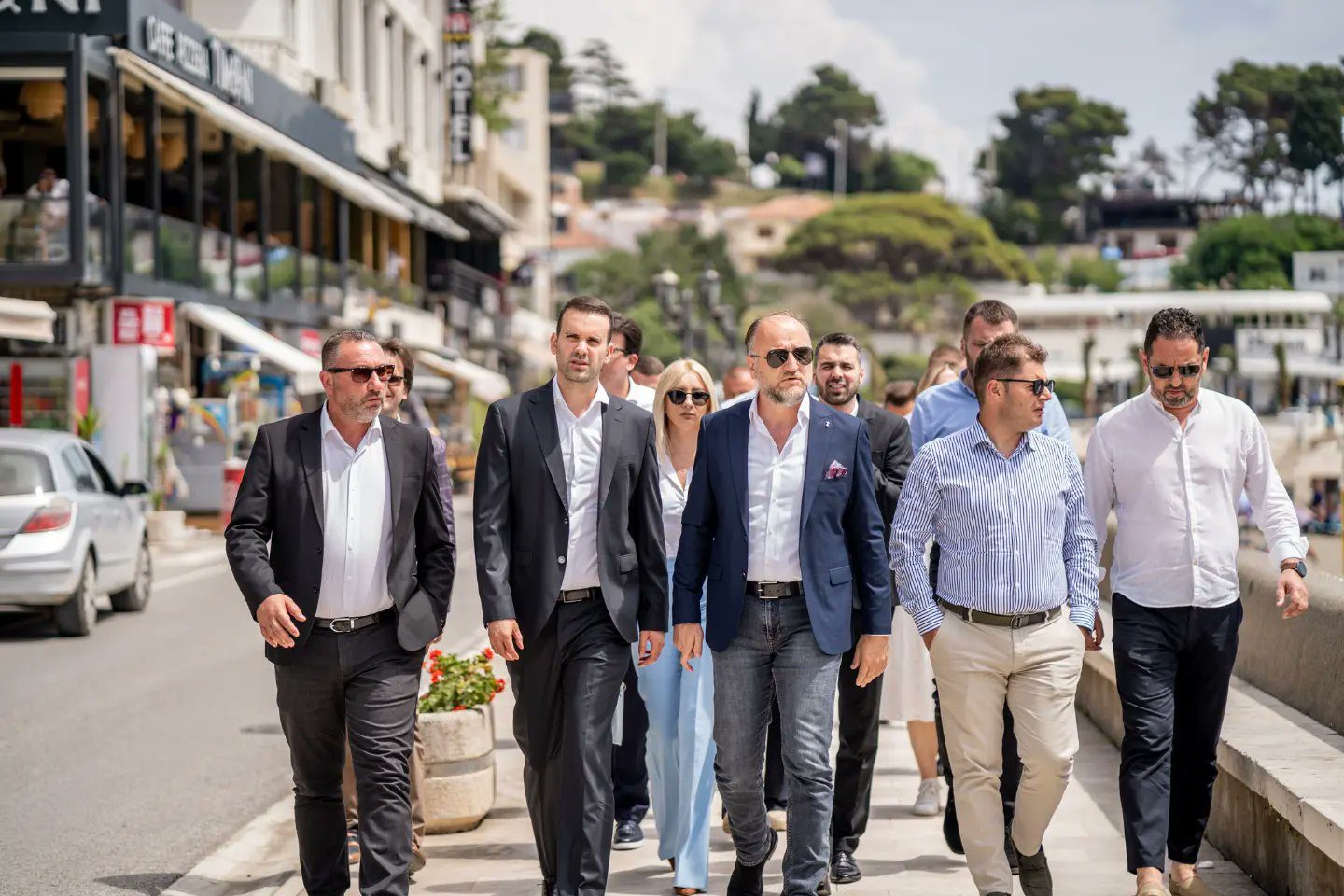No products in the cart.

Leader of the Europe Now Party Milojko Spajić campaigning in the coastal town of Ulcinj ahead of last week’s parliamentary elections.
A coalition of pro-EU parties appears to be the main beneficiary of snap elections in Montenegro after the centrist Europe Now party declared victory. The weekend voting saw them overtake the ailing Democratic Party of Socialists (DPS).
Montenegrin politics has been in a tailspin since 2020 when the DPS was ousted. DPS had dominated the country since Montenegro’s independence from Serbia in 2006, under a cloud of corruption allegations.
Europe Now, only recently founded in 2022, beat the socialists to claim 25.5% of the vote in Sunday’s parliamentary elections. The party expected to attempt to form a coalition with other pro-EU groupings: the URA and Democratic Montenegro.
The result adds to the likelihood that Montenegro, already a member of NATO and using the euro, could join the EU before 2025. Brussels looks to accelerate the integration of the Western Balkans into the bloc for fear of Russian geopolitical meddling and a Serbian backlash. It is a crucial time for the Balkan nation, with the invasion of Ukraine reviving hopes of joining the EU amid rising tensions in the region.
Montenegro, national parliament election today:
— Europe Elects (@EuropeElects) June 11, 2023
CDT parallel count seats projection
Evropa Sad!+-*: 24 (new)
DPS+-S&D|RE: 21 (-13)
NSD/DNP/RP~NI|S&D: 14 (-1)
DCG/URA-G/EFA: 12
BS-EPP: 6 (+3)
AF-*: 2 (new)
AA-*: 1 (-1)
HGI-*: 1 (n.a)
+/- vs. 2020 election#Montenegro #IzboriCG pic.twitter.com/VukSmGYBxn
Europe Now’s deputy leader Jakov Milatović defeated longtime DPS incumbent Milo Đukanović in presidential elections earlier this year, Milatović’s party formed in the vacuum caused by the displacement of DPS from power after 2020.
The Balkan country has endured a series of political crises since 2020, after the DPS collapsed, fueled by a dispute over the recognition of the Serbian Orthodox Church which triggered a flashpoint within the country’s Serbian minority, estimated to be just under 29% of the total population.
The Future of Montenegro Party alliance—regarded as the voice of the nation’s Serb minority—finished with 14.7%. The alliance advocates better ties with Russia and Serbia in comparison to a largely pro-American and pro-EU national elite. Drawing a comparison with Kosovo, many Serbian nationalists view the creation of Montenegro as artificial and criticise the country’s pro-Western orientation.
Despite ethnic tensions in neighbouring Kosovo, which culminated in the deployment of NATO forces to quell protests by Serbian nationalists, the election cycle in Montenegro was peaceful and dominated by issues of social welfare spending and the country’s potential ascension into the EU.
Europe Now leader Milojko Spajić announced his party’s intention to create a cabinet as soon as possible to implement reforms to enable EU membership. Director of the Balkan-based Centre for Monitoring and Research Ana Nenezic says the country faces several more months of political instability due to the lack of a clear dominating party.
Both the United States and the EU are seeking a new pro-Atlanticist partner. Building one with Europe Now would boost Montenegro’s EU credentials.
Montenegro first applied for EU membership two years after independence in 2008 and, similar to Kosovo, is regarded as a pro-Western base of operations in former Yugoslavia. The country has further aligned with the West since the invasion of Ukraine, with some speculating how Montenegrin EU membership would shift its relationship to Serbia.